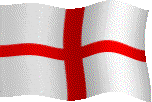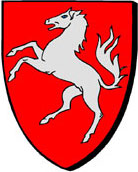Encyclopédie Marikavel-Jean-Claude-EVEN/Encyclopaedia/Enciclopedia/Enzyklopädie/egkuklopaideia

England Bro-Saoz |
Thanet Taneton / Tanatis / Tanatus |

Kent Bro-Gent |
| page ouverte le 19.01.2006 | forum de discussion
* forum du site Marikavel : Academia Celtica |
dernière mise à jour 02/06/2012 17:40:04 |
![]()
|
Définition : (presqu') île de l'extrême sud-est de l'île de Grande Bretagne, en Angleterre, comté du Kent. M.N Bouillet (DUHG) (1863) : "Ile d'Angleterre (Kent), formée par l'embouchure de la Tamise et les deux bras de la Stour : 16 km sur 12; 20.000 hab. Commerce avec Londres. Cette île fut cédée en 449 aux Saxons par les Bretons, lorsqu'ils appelèrent ceux-ci à leur secours contre les Pictes. Bientôt ils voulurent les en chasser, et y furent battus en 463". |
|
![]()
|
Extraits de la carte Map of Roman Britain, par Ordnance Survey |
![]()
|
Histoire : Compte tenu de sa position extrême sud-est de l'île de Bretagne, entre la Manche et la mer du nord, face aux côtes gauloises et accessible des côtes de Germanie, l'île de Thanet a hérité de ce fait d'une réelle importance géographique, historique, et politique.
Aux époques celtique et romaine, Thanet constitue réellement une île séparée de la grande île par un détroit connu sous le nom actuel de Wentsum. On ne communique alors que par des gués, dont les noms actuels sont évocateurs : Sarre, et Rutupia. Les Romains installent des forteresses pour contrôler les entrées de ce détroit : Richborough / Rutupiae - Ritupis, au sud, sur le détroit du Pas de Calais, et Reculver / Regulgium au nord, sur la rive sud de l'embouchure de la Tamise. ***** En 449, ayant à faire face à des incursions pictes / scotes destructrices, et ne pouvant compter sur l'aide de l'empire romain, Vortigern, alors dux de Bretagne, fait appel à des barbares, les Jutes (aujourd'hui Jutland, en Danemark). Un groupe de ceux-ci, sous la conduite des chefs Hengist et Horsa, répond à la demande, et débarque à Heopwinesfleot / Ebbsfleet, dans l'angle sud-est de Thanet.
Reconstitution d'un drakkar à Ebbsfleet Étant, par cette alliance avec les Jutes, vainqueur des Pictes / Scots, Vortigern concrétise cette alliance par une reconnaissance mutuelle, d'abord en épousant la fille d'Hengist, donc une Barbare, après avoir répudié son épouse, une Britto-romaine, chrétienne et mère de ses premiers enfants, puis en donnant aux Jutes la jouissance de l'île de Thanet. Un problème se crée peu de temps après, lorsque les Britto-romains se rendent compte que les Jutes installent à Thanet un nombre de personnes plus important que prévu. Ayant demandé aux Jutes de s'en tenir à des proportions 'raisonnables', et ceux-ci ne voyant pas les choses de la même façon, un conflit s'élève alors entre les alliés, et celui-ci s'achève par la confrontation militaire d'Aylesford en 455 où, bien que victorieux, les Britto-romains tombent ensuite dans un piège tendu par Hengist, perdant ainsi un grand nombre de soldats et d'officiers. Les Jutes s'emparent alors de l'est du Kent, y compris le port de Douvres et les anciennes forteresses de Richborough et de Reculver, et de la capitale du Kent elle-même : Canterbury. Cette confrontation marque le début de la conquête dite 'anglo-saxonne' de la Bretagne romaine. Voir pour cela notre page : histoire-chap18a-vortigern-450.htm *****
*****
*****
***** Ce détroit s'est modifié dans le temps, au gré des marées et des mouvements géologiques. Les camps de Rutupiae et de Regulbium ont été rognés, puis les alluvions provenant des falaises du Pas de calais et de la Tamise ont fini par combler ce détroit, ce qui fait qu'aujourd'hui, Thanet n'est plus, en réalité, qu'un presqu'île. *****
|
![]()
|
Étymologie : * Eilert Ekwall (1936) : "Tanatus 3 Solinus; Tanatos c 730 Bede; Teneid 679; Taenett 949 BM; Tenet c 890 OEBede, 943 BCS 780; Tanet DB; Taenate 1205 Lay. The name is identical or cognate with the river-name Tanat. It may mean 'bright island' or 'fire island' (from a beacon or lighthouse)".
************ * Meven Mordiern (1944) : "Taneton (Thanet)". ************ * A.L.F Rivet & Smith, p. 468-469 : TANATIS or TANATUS SOURCES - Ptolemy II, 3, 14 : Toliatis nesos (= TOLIATIS INSULA), var. Toliapis (= TOLIAPIS) - Solinus 22, 8: TANATUS - Ravenna I0530 (= R&C 306): TANIATIDE, var. TAMATIDE - Isidore XIV, 6, 3 : THANATOS, insula Oceani, freto Gallico a Britannia aestuario tenui separata The correct form is that of Solinus and Isidore. Müller thinks that Ptolemy's version arose from a misreading of N as AI (LI), and there is a further error of o for a. Ravenna's, entry indicates an oblique case in -ide(m), which is not to be despised in view of Ptolemy's nominative in -is; perhaps, as often, the name was declined in two ways. DERIVATION. Förster FT 579 suggests that the Latin name is a version of a British *Tanneton, from a root *tanet- known in that form in Old Welsh as 'feurig, glänzend' (Welsh, Cornish and Breton tan 'fire', Old Irish tene, gen. tened). Watson CPNS 443 mentions the river Teinntidh near Callander (Perthshire), a Gaelic name with which he compares Old Irish tentide; the river would have been called 'fiery, from its rapid boiling course', though it is probably easier to retain Forster's sense 'glänzend' ('shining') for a river-name, since we have semantic parallels such as Leuca. Ekwall thinks the precisely comparable Shropshire river Tanat the 'brilliant river'. To these W. Nicolaisen in BZN, VIII (1957), 260, who also discusses the etymology, adds mention of the Scottish rivers Tennet (Angus) and Tynet or Tynot (Banff). Ekwall EPN thinks that the present name 'may mean "bright island" or "fire island" (from a beacon or lighthouse)'. We would then have a literal meaning for the island-name, and a slightly metaphorical one for the rivers. If the etymology is right, *tanet- in British has undergone an assimilation of vowels (a-e > a-a) in being latinised, perhaps by association with Greek Tanatos; this association is entirely clear in Isidore's version with Th-, and he explains the name a morte serpentum 'from the death of snakes', the earth of the island when transported elsewhere being fatal to them (as recorded by Solinus). The Anglo-Saxon name was Tenid, Tanet, etc. ; presumably modem Th- is due to learned influence (but not from Bede, who at I, 25, has Tanatos). A possible analogue abroad, Taneto near Parma (Italy), is mentioned by Nicolaisen; other apparently similar names probably have Gaulish *tann- 'oak', which sometimes appears with the -etum suffix indicating ' wood of... '. IDENTIFICATION. The Isle of Thanet, Kent (which was then separated from the mainland by the Wantsum Channel). Note. Nennius hints at an alternative British name when he writes (31) of the insulam, quae in lingua eorurn [i.e., Saxons] vocatur Tanet, Brittanico sermone Ruoihm (again simply Tanet in 36, 43). Variants include Tanett, Thanet, Tenet, and for the British name, Ruichum, Ruoichim, Ruoichin, Roihin, Ruimh. The name is also found in line 31 of the Welsh prophetie poem Armes Prydein of about 900, as Danet (see Ifor Williams's edition, English version by R. Bromwich (Dublin, 1972), P- 31). ************ A.D Mills (1991-2003) : "Tanatus 3rd cent.; Tanet 1086 (DB). A Celtic name possibly meaning 'bright island', perhaps with the reference to a beacon". ************ |
![]()
| Bibliographie; sources :
* M.N BOUILLET : Dictionnaire universel d'Histoire et de Géographie. Hachette. 1863. * Eilert EKWALL : The Concise Oxford Dictionary of English Place-names. Clarendon Press. Oxford. 1936 - 1980 (4è édition). * Meven MORDIERN : Notennou diwar-benn ar Gelted Koz. O istor hag o sevenadur . Skridoù Breizh. 1944. * Leo SHERLEY-PRICE : Bede. A history of the English Church and People. Penguin Books. 1955. Réimpression 1974. * G.N GARMONSWAY : The Anglo-Saxon Chronicle. Everyman's Library. london. 1953. Réimpression 1984. * Ordnance Survey : Map of Roman Britain. 1956. * G.N GARMONSWAY : The Anglo-Saxon Chronicle. Everysman's Library. London. 1956-65; édition 1972; réimpression 1984; * A.LF. RIVET & Colin SMITH : The Place-names of Roman Britain. Batsford Ltd. London. 1979-1982. * Philip MORGAN : Domesday Book. Vol. 1 : Kent. General Editor : John MORRIS. Phillimore. Chichester. 1983. * A.D MILLS : Oxford Dictionary of British Place Names. Oxford University Press. 1991-2003 |
![]()
|
Liens électroniques des sites Internet traitant de Thanet / Tanatis / Tanatus : forum de discussion* forum du site Marikavel : Academia Celtica hast buan, ma mignonig go fast, my little friend |
![]()